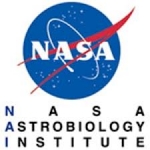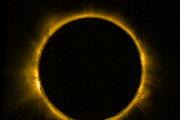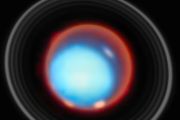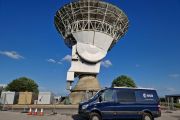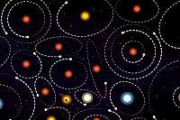Displaying items by tag: astrobiology
Goddard Center for Astrobiology (GCA)
The Goddard Center for Astrobiology (GCA) is a NASA center focusing on astrobiology research themes.
- Did delivery of carbon-containing molecules and water to the early Earth enable the emergence and evolution of life?
- If so, how did it happen?
- What were the processes involved in the creation of such molecules?
These are some of the driving questions behind the research that is performed at the Goddard Center for Astrobiology. Our scientists focus on various aspects of exogneous materials, from the formation of complex organic materials on ice grains to the delivery of those primordial materials to the Earth, starting in the early bombardment period and continuing until today.
A critical assessment requires investigations of very diverse topics. Our research encompasses four themes: each focusing on a different aspect of how life emerges from cosmic and planetary precursor (Goal 3 of the NASA Astrobiology Road Map).
NASA Astrobiology Institute
The NASA Astrobiology Institute (NAI) is an innovative way to develop the field of astrobiology and provide a scientific framework for flight missions.
NAI is a virtual, distributed organization of competitively-selected teams that integrate astrobiology research and training programs in concert with the national and international science communities.
It was setup by NASA in 1998.
Astrobiology is the study of the origins, evolution, distribution, and future of life in the universe. This interdisciplinary field requires a comprehensive, integrated understanding of biological, planetary, and cosmic phenomena. Astrobiology encompasses the search for habitable environments in our Solar System and on planets around other stars; the search for evidence of prebiotic chemistry or life on Solar System bodies such as Mars, Jupiter's moon Europa, and Saturn's moon Titan; and research into the origin, early evolution, and diversity of life on Earth. Astrobiologists address three fundamental questions: How does life begin and evolve? Is there life elsewhere in the universe? What is the future of life on Earth and beyond?
NAI's mission is to:
- carrying out, supporting and catalyzing collaborative, interdisciplinary research;
- training the next generation of astrobiology researchers;
- providing scientific and technical leadership on astrobiology investigations for current and future space missions;
- exploring new approaches using modern information technology to conduct interdisciplinary and collaborative research amongst widely-distributed investigators;
- supporting outreach by providing scientific content for K-12 education programs, teaching undergraduate classes, and communicating directly with the public


